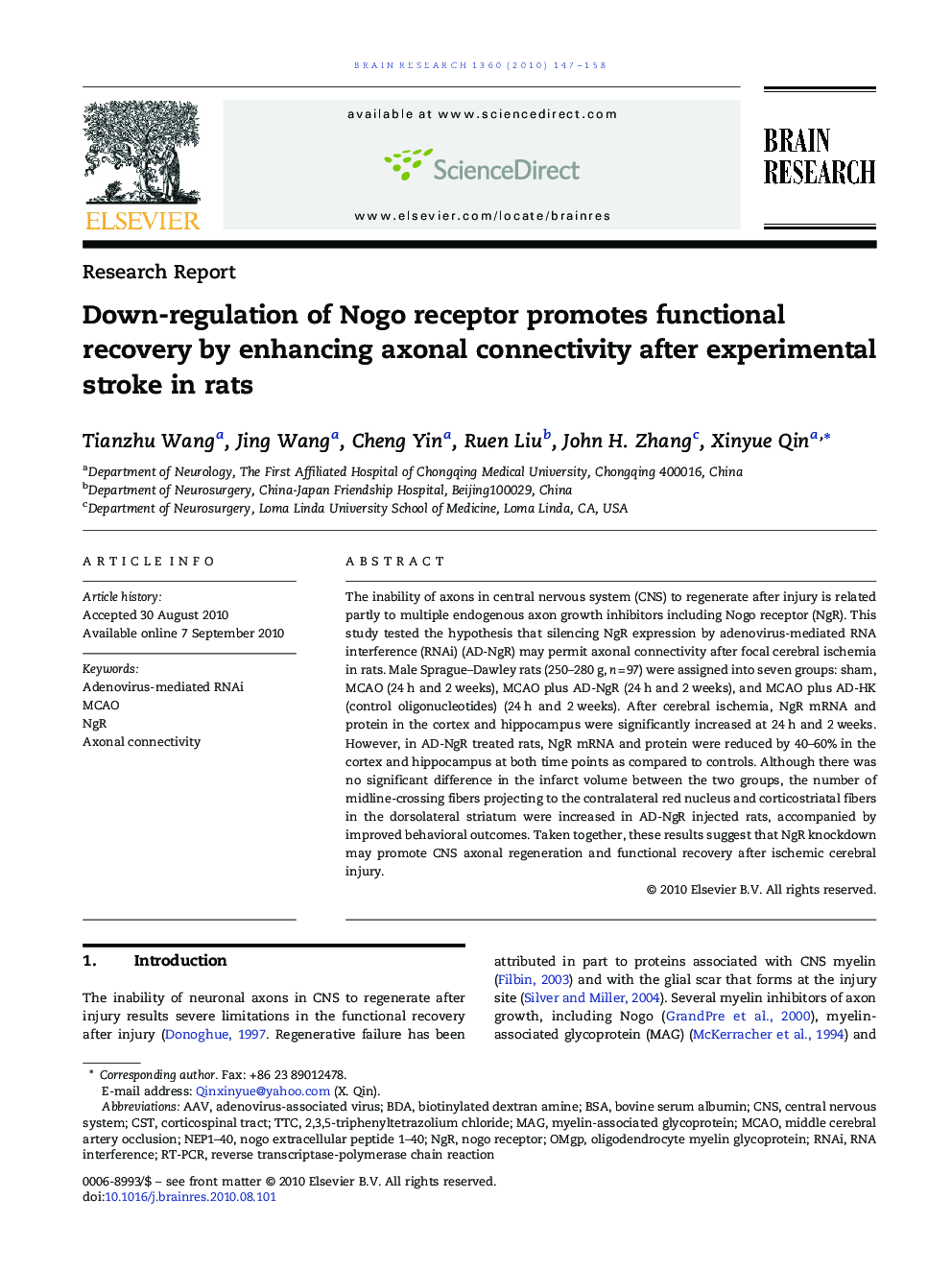| Article ID | Journal | Published Year | Pages | File Type |
|---|---|---|---|---|
| 4326276 | Brain Research | 2010 | 12 Pages |
The inability of axons in central nervous system (CNS) to regenerate after injury is related partly to multiple endogenous axon growth inhibitors including Nogo receptor (NgR). This study tested the hypothesis that silencing NgR expression by adenovirus-mediated RNA interference (RNAi) (AD-NgR) may permit axonal connectivity after focal cerebral ischemia in rats. Male Sprague–Dawley rats (250–280 g, n = 97) were assigned into seven groups: sham, MCAO (24 h and 2 weeks), MCAO plus AD-NgR (24 h and 2 weeks), and MCAO plus AD-HK (control oligonucleotides) (24 h and 2 weeks). After cerebral ischemia, NgR mRNA and protein in the cortex and hippocampus were significantly increased at 24 h and 2 weeks. However, in AD-NgR treated rats, NgR mRNA and protein were reduced by 40–60% in the cortex and hippocampus at both time points as compared to controls. Although there was no significant difference in the infarct volume between the two groups, the number of midline-crossing fibers projecting to the contralateral red nucleus and corticostriatal fibers in the dorsolateral striatum were increased in AD-NgR injected rats, accompanied by improved behavioral outcomes. Taken together, these results suggest that NgR knockdown may promote CNS axonal regeneration and functional recovery after ischemic cerebral injury.
Research highlights► After cerebral ischemia, NgR1 mRNA and protein in the cortex and hippocampus were significantly increased at 24 h and 2 weeks. ► In AD-NgR treated rats, NgR1 mRNA and protein were reduced by 40–60% in the cortex and hippocampus at both time points as compared to controls. ► The number of midline-crossing fibers projecting to the contralateral red nucleus and corticostriatal fibers in the dorsolateral striatum were increased in AD-NgR injected rats, accompanied by improved behavioral outcomes. ► Taken together, these results suggest that NgR1 knockdown may promote CNS axonal regeneration and functional recovery after ischemic cerebral injury.
